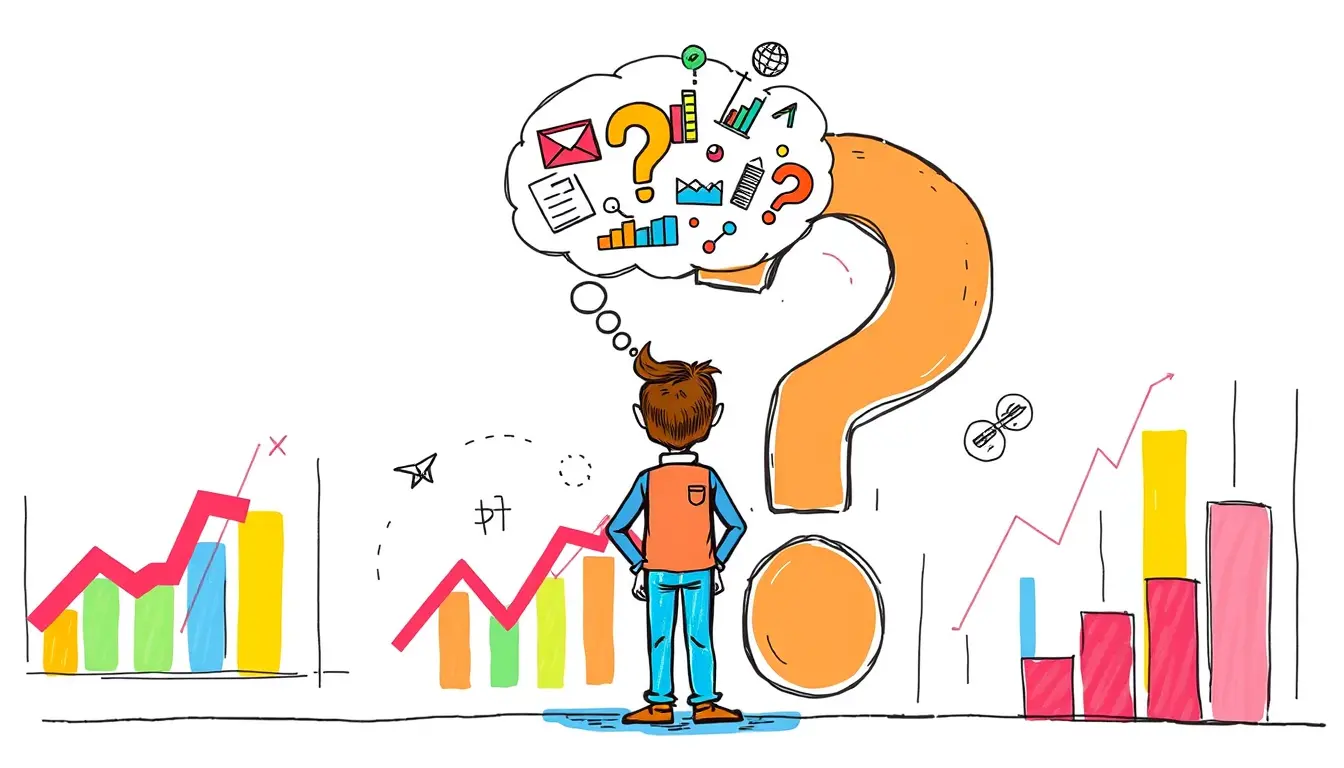What is Blockchain?
Blockchain is a distributed ledger technology that allows multiple parties to maintain a shared database without the need for a central authority. It is essentially a chain of blocks, where each block contains a list of transactions that have been recorded and verified by network participants. Unlike traditional databases, blockchain is transparent and immutable, ensuring the integrity and security of the data stored within it.
One of the key features of blockchain is its decentralized nature. Instead of a single entity controlling the data, it is stored and verified by a network of computers, known as nodes. This makes it resistant to censorship and fraud, as any changes made to the blockchain would require consensus from the majority of the network. Additionally, blockchain provides a high level of transparency, as anyone can view the data stored within the chain. This has significant implications in various industries, such as finance, supply chain management, and healthcare, where trust, security, and traceability are crucial.
The History of Blockchain
In the early 2000s, a mysterious individual or group known as Satoshi Nakamoto introduced the groundbreaking concept of blockchain technology. Nakamoto’s creation was a response to the inherent flaws of traditional centralized systems, which often encountered issues such as security breaches, lack of transparency, and dependence on third parties. The emergence of blockchain marked a turning point in the history of digital transactions, as it offered a decentralized and immutable ledger system that provided a secure and transparent means of conducting transactions.
Nakamoto’s original vision of blockchain was realized in 2009, with the launch of the first cryptocurrency, Bitcoin. This digital currency utilized blockchain technology to enable peer-to-peer transactions without the need for intermediaries or centralized authorities. The blockchain revolution had begun, and since then, numerous other cryptocurrencies and blockchain-based platforms have emerged, each with their own unique features and applications. This decentralized technology has since expanded beyond the realm of digital currencies, finding applications in various industries and sectors, including finance, supply chain management, healthcare, and more. The history of blockchain is a testament to the power of innovation and the potential for disruptive technological advancements in the modern era.
Key Concepts of Blockchain
Blockchain is a revolutionary technology that has gained significant attention in recent years. At its core, blockchain is a decentralized and transparent digital ledger that records transactions across multiple computers or nodes. The key concept of blockchain lies in its ability to create a trustless system, where transactions and data entries are securely recorded and cannot be altered or tampered with. This is achieved through the use of cryptographic algorithms and consensus mechanisms, such as proof of work or proof of stake.
Another important concept in blockchain is the idea of immutability. Once a transaction or data entry is added to the blockchain, it becomes permanent and cannot be deleted or modified. This allows for a high level of data integrity and makes blockchain an attractive solution for industries that require secure and tamper-proof record keeping, such as finance, supply chain, and healthcare. The concept of immutability also ensures transparency, as all participants have access to the same set of records, eliminating the need for intermediaries and providing a clear audit trail.
The Role of a Business Analyst in Blockchain Implementation
Business analysts play a crucial role in the successful implementation of blockchain technology within organizations. With their expertise in analyzing business processes and identifying gaps, they help to determine the best use cases for blockchain. As part of their role, business analysts collaborate closely with stakeholders to understand their business requirements and translate them into technical specifications.
In the context of blockchain implementation, business analysts facilitate the alignment of decentralized and consensus-driven networks with the organization’s objectives. They contribute to the creation of comprehensive business models and use cases, ensuring that the technology is applied in a way that brings value and solves specific problems. Additionally, business analysts provide support during the development and testing phases, ensuring that the implemented blockchain solution meets the desired functionalities and addresses the identified pain points.
Understanding Blockchain Technology
Blockchain technology is a decentralized and distributed ledger system that allows the recording and verification of transactions across multiple computers. It is the underlying technology behind cryptocurrencies like Bitcoin, but its applications extend beyond digital currencies. At its core, blockchain technology enables secure and transparent record-keeping, making it ideal for a wide range of industries such as finance, supply chain management, and healthcare.
The key feature of blockchain technology is its ability to create an immutable and transparent history of transactions. Each transaction is recorded in a “block” and added to a “chain” of previous blocks, hence the name blockchain. This chain of blocks is stored across multiple computers, known as nodes, which work together to maintain a consensus on the validity of each transaction. This decentralized nature of blockchain technology eliminates the need for a central authority or intermediary, making it resistant to fraud, tampering, and censorship. As a result, blockchain technology has the potential to revolutionize trust and security in various sectors, providing businesses with new opportunities and challenges.
Benefits of Blockchain for Businesses
Blockchain technology offers a multitude of benefits for businesses across various industries. One of the primary advantages is increased transparency and immutability. With blockchain, all transactions and data are recorded on the decentralized network, making it nearly impossible to alter or manipulate information without the consensus of the network participants. This level of transparency not only promotes trust among business partners but also eliminates the need for intermediaries, reducing costs and enhancing efficiency.
Moreover, blockchain technology provides enhanced security for businesses. By design, blockchain networks are highly secure as each transaction is encrypted and linked to the previous transaction. This creates a chain of blocks that are nearly impossible to tamper with, ensuring that all data remains secure and confidential. Additionally, because of its decentralized nature, blockchain eliminates the single point of failure that traditional centralized systems may have, making it more resistant to hacking and unauthorized access. This heightened security is particularly valuable for businesses dealing with sensitive data, such as financial institutions and healthcare organizations.
Challenges in Implementing Blockchain
The implementation of blockchain technology, while promising, comes with its fair share of challenges. One of the main obstacles faced is scalability. As the number of transactions processed on a blockchain increases, so does the complexity of the network. This can result in slower transaction speeds and increased costs. Additionally, there is a need to ensure that all participants in the network adhere to the same set of rules and protocols, which can be challenging to achieve in a decentralized environment.
Another challenge in implementing blockchain is the issue of regulatory compliance and legal framework. As blockchain operates across borders and involves various parties, it is crucial to navigate the complex regulatory landscape. Different jurisdictions may have different requirements and guidelines for blockchain applications, which can pose a significant hurdle for businesses looking to adopt the technology. Moreover, the immutable nature of blockchain can also raise concerns regarding data privacy and protection, requiring careful consideration and adherence to data protection regulations.
Analyzing Use Cases for Blockchain in Business
Blockchain technology has the potential to revolutionize various industries, including finance, supply chain management, healthcare, and more. Analyzing use cases for blockchain in business is crucial to understand how this technology can be effectively implemented to solve real-world problems. One promising use case is in supply chain management, where blockchain can enhance transparency, improve traceability, and mitigate counterfeiting risks. By recording every transaction and movement of goods on a decentralized ledger, businesses can ensure authenticity, reduce fraud, and establish trust among stakeholders.
Another compelling use case for blockchain in business is financial transactions and remittances. Traditional banking systems are often slow, expensive, and prone to fraud. However, with blockchain, transactions can be executed almost instantaneously, with minimal fees, and with enhanced security. This technology has the potential to empower individuals and businesses by providing them with more control over their financial assets and reducing the dependence on intermediaries. Analyzing such use cases can help businesses identify the specific areas where blockchain can bring about significant benefits and drive innovation.
• Blockchain technology has the potential to revolutionize various industries, including finance, supply chain management, healthcare, and more.
• Analyzing use cases for blockchain in business is crucial to understand how this technology can be effectively implemented to solve real-world problems.
• One promising use case is in supply chain management, where blockchain can enhance transparency, improve traceability, and mitigate counterfeiting risks.
• By recording every transaction and movement of goods on a decentralized ledger, businesses can ensure authenticity, reduce fraud, and establish trust among stakeholders.
• Another compelling use case for blockchain in business is financial transactions and remittances.
• Traditional banking systems are often slow, expensive, and prone to fraud. However,
with blockchain,
transactions can be executed almost instantaneously,
with minimal fees,
and with enhanced security.
• This technology has the potential to empower individuals and businesses by providing them with more control over their financial assets
and reducing the dependence on intermediaries.
• Analyzing such use cases can help businesses identify the specific areas where blockchain can bring about significant benefits
and drive innovation.
Best Practices for Business Analysts in Blockchain Projects
One of the key tasks for a business analyst in a blockchain project is to thoroughly understand the technology and its implications. This requires diving into the technical aspects of blockchain, such as the underlying algorithms, consensus mechanisms, and data structures. Without a solid understanding of these concepts, it is difficult for the business analyst to effectively contribute to the project. Additionally, the business analyst should be well-versed in the industry-specific use cases of blockchain and how the technology can be leveraged to optimize processes and solve business challenges.
Another best practice for business analysts in blockchain projects is to actively engage with stakeholders throughout the project lifecycle. This involves conducting thorough interviews and workshops to gather requirements and define the scope of the project. It is crucial for the business analyst to involve all relevant parties, including developers, users, and management, in order to have a comprehensive understanding of the business needs and align them with the capabilities of blockchain technology. Regular communication and collaboration with stakeholders also helps to ensure that the project remains on track and meets the desired outcomes.
Resources for Further Learning about Blockchain
If you are looking to further your understanding of blockchain technology, there are several resources available that can help you dive deeper into this complex subject. Online courses and certifications, such as those offered by reputable platforms like Coursera or Udemy, provide comprehensive training on blockchain fundamentals and various use cases. These courses are designed to cater to different levels of expertise and can be accessed at your own pace, allowing for flexible learning. Additionally, industry-specific forums and online communities, such as Reddit or Bitcointalk, offer a wealth of information and discussions on blockchain developments and emerging trends. Engaging with these communities can provide valuable insights and foster connections within the blockchain ecosystem.
For those seeking more in-depth knowledge, there are also books and whitepapers available that delve into the intricacies of blockchain technology. Authors such as Don Tapscott, Andreas Antonopoulos, or Vitalik Buterin have written extensively on the subject and their works can provide a comprehensive understanding of blockchain concepts, its potential applications, and the challenges associated with its implementation. Moreover, attending blockchain conferences and networking events can give you the opportunity to connect with industry experts and gain firsthand insights into the latest advancements and best practices. Exploring these resources will undoubtedly equip you with the necessary tools to navigate the vast and rapidly evolving field of blockchain technology.
What is blockchain?
Blockchain is a decentralized and distributed digital ledger technology that records transactions across multiple computers or nodes. It provides transparency, security, and immutability to the data stored in it.
What is the history of blockchain?
Blockchain technology was first introduced in 2008 with the publication of the Bitcoin whitepaper by an anonymous person or group of people known as Satoshi Nakamoto. It was initially developed to serve as the public ledger for Bitcoin transactions.
What are the key concepts of blockchain?
The key concepts of blockchain include decentralization, consensus mechanism, cryptographic hashing, smart contracts, and immutability. These concepts form the foundation of how blockchain operates and ensures its security and integrity.
What is the role of a business analyst in blockchain implementation?
A business analyst plays a crucial role in blockchain implementation by analyzing and understanding business requirements, identifying blockchain use cases, facilitating communication between stakeholders, ensuring regulatory compliance, and supporting the development and implementation of blockchain solutions.
What are the benefits of blockchain for businesses?
Blockchain offers several benefits for businesses, including increased transparency, improved security, reduced costs, enhanced traceability, streamlined processes, and the potential for new business models. It can also enable trustless and peer-to-peer transactions without the need for intermediaries.
What are the challenges in implementing blockchain?
Some of the challenges in implementing blockchain include scalability issues, regulatory and legal uncertainties, lack of standardization, integration with existing systems, privacy concerns, and the need for skilled professionals.
How can businesses analyze use cases for blockchain in their operations?
Businesses can analyze use cases for blockchain by identifying pain points, evaluating the suitability of blockchain technology for those pain points, considering the potential benefits and drawbacks, conducting pilot projects or proofs of concept, and collaborating with experts or consultants.
What are the best practices for business analysts in blockchain projects?
Some best practices for business analysts in blockchain projects include gaining a comprehensive understanding of blockchain technology, staying updated with industry trends and regulations, collaborating closely with technical teams, engaging stakeholders effectively, and continuously evaluating and improving the blockchain solutions.
Where can I find resources for further learning about blockchain?
There are several resources available for further learning about blockchain, including online courses, books, whitepapers, industry forums, webinars, and conferences. Some popular platforms for blockchain education include Coursera, Udemy, Blockchain at Berkeley, and the Consensus conference.













Leave a Reply